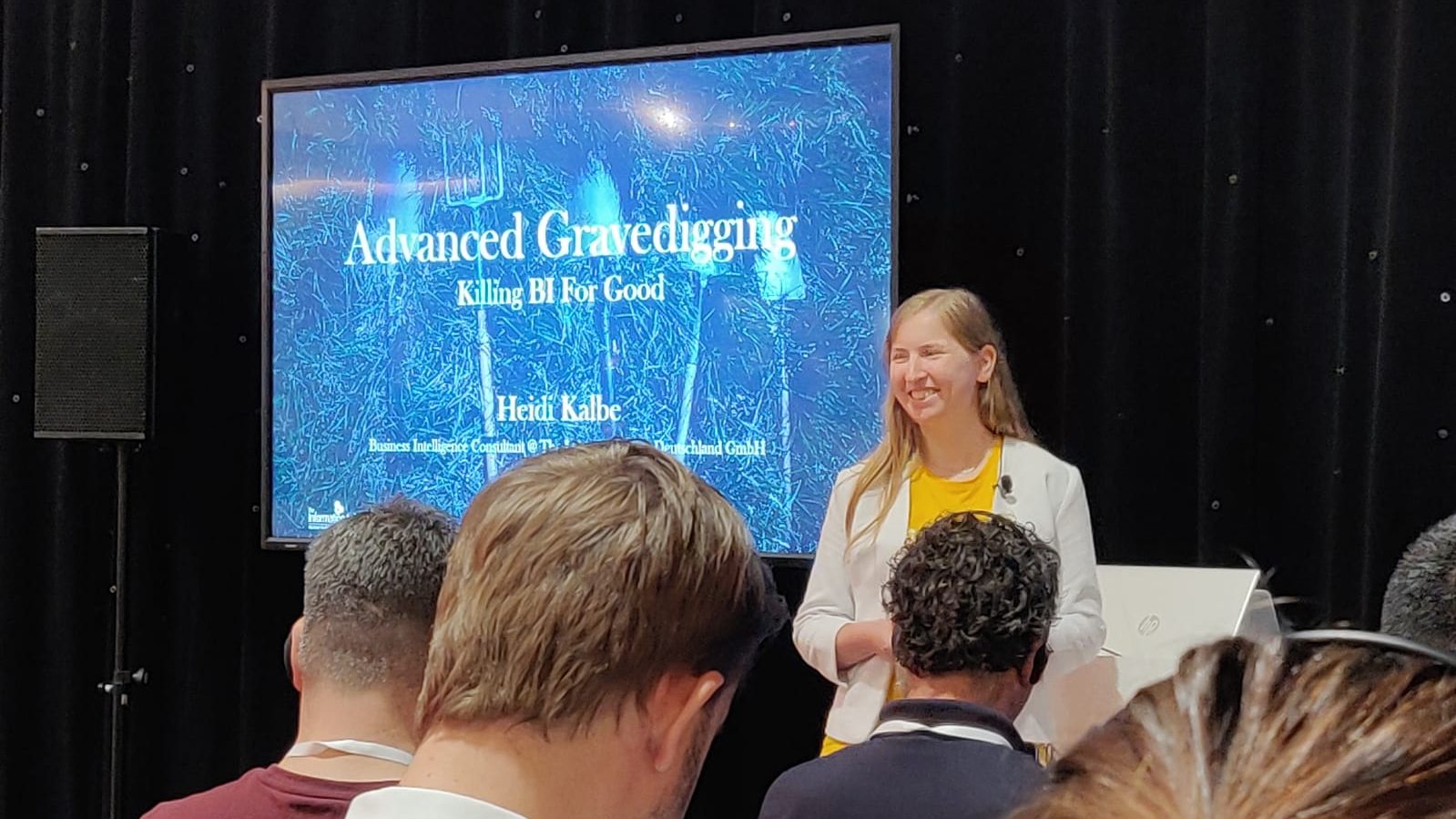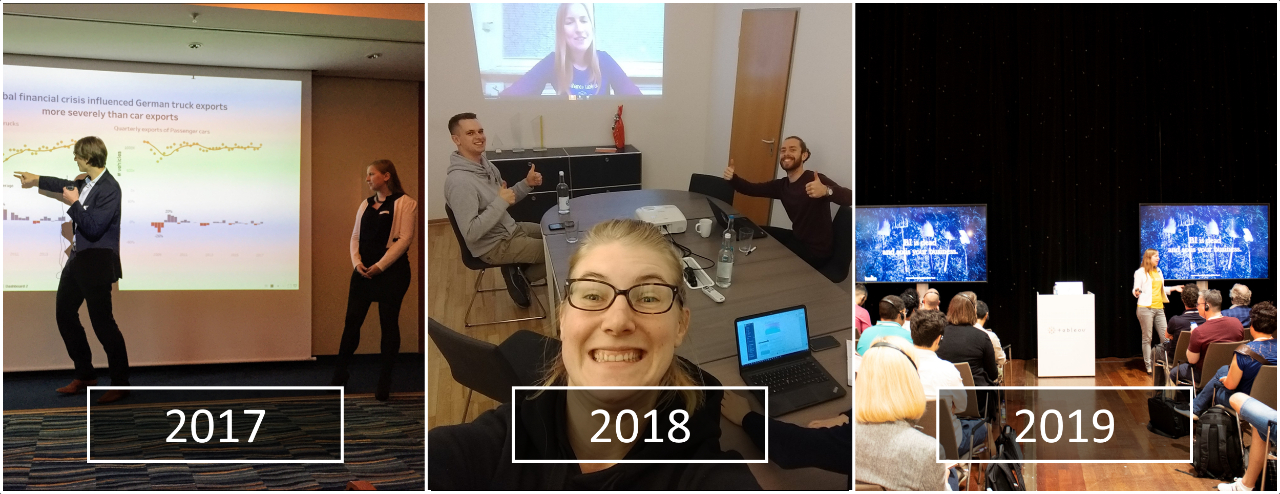Com(munity) As You Are: Building Momentum (pt. 3/4)
Now that you’ve set up your Twitter and Tableau Public profiles as mentioned in Part 2 of this mini series, you’re ready for the next steps.
-
Blog
What I did:
I started blogging for the German company blog of The Information Lab. Chances are, if you’re searching for a German how-to for a chart type, or the differences between Tableau and Excel, you’ll find one of my blog posts. With the help of Chris McClellan and the DataFam Network, I started my very own blog (the one you’re currently reading – duh) in November 2019. Why?
Well, first of all, I love writing and I love data visualization, so blogging seems like the obvious next step. It’s also great for finding answers quick. I can’t tell you the number of times I’ve had to look up my own blog posts because I had forgotten how I did something in the past.
This has two very pleasant side effects:
Firstly, when a colleague or client has a question on how to do something, I can answer them fast. I don’t have to take the time to type out a twenty step instructional email. I can simply direct them to a helpful blog post on the very topic they were inquiring after.
And secondly, it raises the content I am passionate about these days further up in the Google ranking. Why is this important?
A few years ago, when you would search for my name on the internet, Google would always ask “Did you mean Heidi Kabel?” Ms Kabel is a German actress who sadly passed away ten years ago. Because her name is so similar to mine and because there was much more content around her person on the internet than around mine, Google would assume you had mistyped your actual query. This doesn’t happen anymore these days.

What you can learn from that:
Some important person has a similar name to yours? Or you have a rather common name with a gazillion other people out there with the same name as you? Or you have some unflattering pictures of your past out there that you would prefer nobody see? Publishing current content will push those other contents further back.
If people find your posts helpful, they will link to them or share them within their networks, further pushing your content. When you become known for quality content, people will have positive associations with you. You can help yourself and others find answers to their questions fast.
-
Speak
What I did:
If you are like me, you are afraid of public speaking – as are most other people out there. If you are some more like me, you will do it anyway. I promise you, scary as it is to step onto the stage of public scrutiny, it will feel like flying afterward. All the effort will have been worth it.

You will build a library of content to be pulled out at any given moment. My very first Tableau Fringe Festival (TFF) was in December 2018. I have since held that same talk another seven times. I use it for guest lectures and info evenings, and whenever my boss asks me to hold a presentation without creating a completely new one.
Furthermore, public speaking substantiates your perceived expertise in your chosen field. If other people have taken the time to listen to you, you must be worth being heard. People who don’t know you yet will be more inclined to listen to what you have to say. The same goes for your self confidence. When you realize that other people are happy to listen to you, you will have more trust in the fact that what you have to say is in fact worth being heard.
Your presentations are also a good conversation starter. When I met all the #DataFam members at TC19 in Vegas I hadn’t been in touch with before, Chris kept introducing me with “Have you met Heidi? She presented at TFF APAC!” And that was that.
I once had a conversation with a client over lunch where we talked about worthwhile sessions at TCE19. They mentioned that they were catching up on the recordings of sessions they had been unable to attend, and talked about one in particular that they had liked, about how conventional BI is killing businesses. Turns out it was my session.
Looking back, public speaking has given my personal development one hell of a shove forward. Three years ago, I was the one to hover awkwardly in the background while I let the man on my team present the results of a group effort. A year later, I participated in my first TFF. And just last year, I spoke at Tableau Conference Europe. I now have no (or very few) qualms in speaking out when I feel that my opinion will contribute to the discussion at hand.

What you can learn from that:
People are scared of speaking in front of an audience themselves. Others will be impressed and subconsciously maybe even somewhat grateful that you were the one to brave the stage so that they didn’t have to. They will associate positive emotions with you. You become approachable, as you show that you deem your opinion worth being heard, so it probably is. People will be happy to listen to you, or come up with questions afterward, or simply want to stay in touch.
You will also improve your own soft skills. Not only does public speaking become a little less scary with every presentation you hold. You also become more confident in human interaction and in your own expertise in general.
You have content ready to draw from. If you organize any kind of event and a speaker falls through, you can easily pull from your own library of content and step in. Same as with blogging, if you publish recordings of your talks, you have content ready to share and can answer questions faster by directing people to your presentations. It also improves your SEO.
I have found TFF to be the perfect starting point. It is an online conference, so you can speak from the safety of your own home. You sit behind your laptop, in your PJs, if you like, and you don’t have to face the audience. The recordings are then published to YouTube. You can easily share them with others or embed in your web presence.
Now that you’re done with all the preparation, let’s focus longterm. Find out more in the final part of this mini series.

